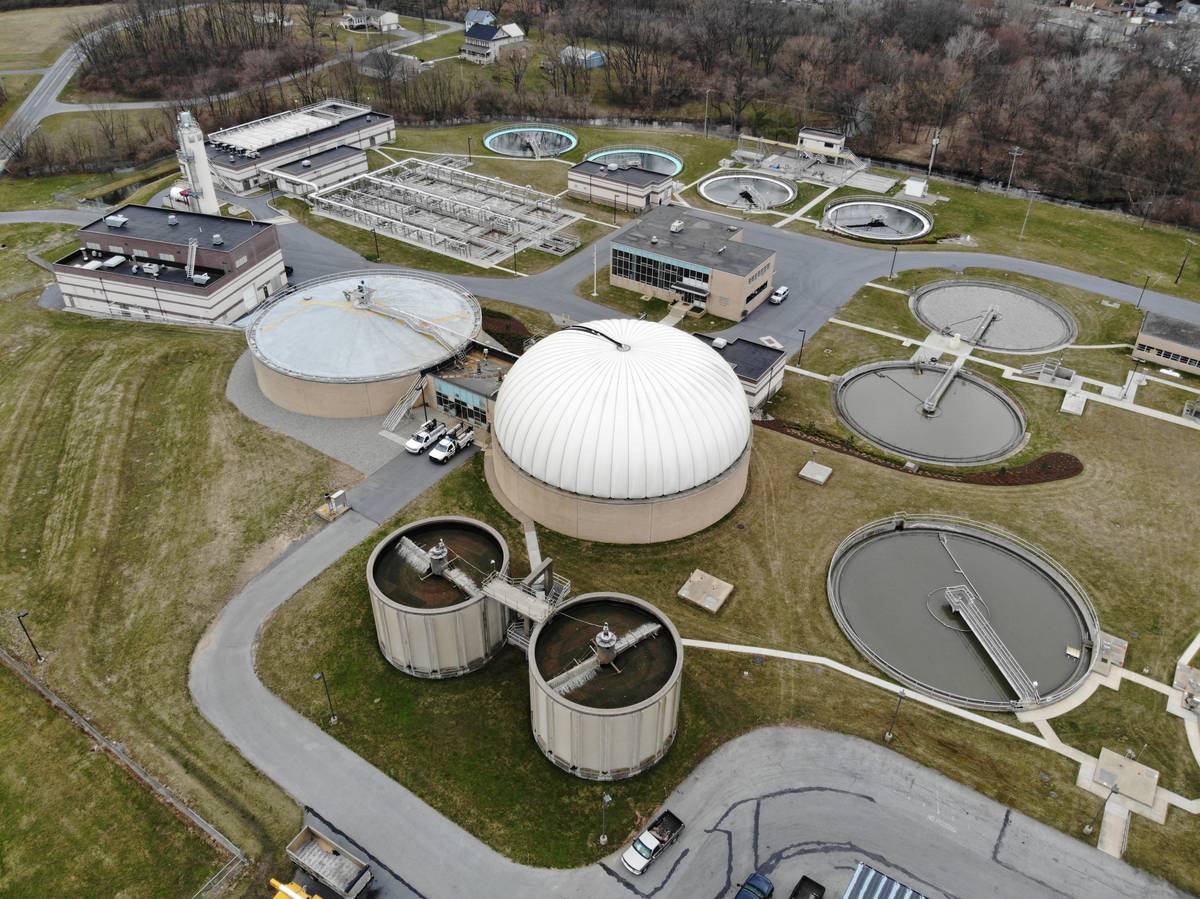This article was funded by LebTown donors as part of our Civic Impact Reporting Project.
The City of Lebanon Authority (COLA) is likely to add a new class of water consumers — “consumptive use customers,” or residential, commercial and industrial customers that both use an average of 10,000 gallons a day and don’t return that amount through COLA’s wastewater system.
Currently, sewer bills are based on water meter readings with the assumption that the amount of water used by a customer flows back into the source — in this case, COLA — through the wastewater or sewer system.
But sometimes the water that goes into a residence, commercial site or manufacturing facility doesn’t equal the amount of water returned. The water going in, for instance, might be used to produce food products such as juices or baked goods and stay in those products rather than get flushed into the wastewater or sewer system.
For the past several months, COLA has been working to change rates and regulations for water that is used but not returned to the system, said Jon Beers, COLA executive director, at Monday’s board meeting.
Setting rates for consumptive use would allow COLA to better track its sewer flow data for its internal operations and also for the Susquehanna River Basin Commission, which monitors water withdrawals from the river basin. Customers could benefit because sewer bills would be more accurate, Beers said.
Those proposed regulations are under review by COLA’s engineers and solicitors and could be ready for board review in August, Beers said.
Before the board votes, those municipalities that use COLA’s water-meter readings to calculate their sewer bills also will have a chance to review them.
The expectation is that the consumptive use rates and regulations will go into effect on Jan. 1, Beers said in an email Wednesday.
Also being considered are new regulations for industries with high-strength waste such as nitrogen. COLA’s wastewater treatment plant is close to the amount of nitrogen in the wastewater it is permitted to discharge into the Quittapahilla Creek, Beers told the board.
One possible solution is to require customers sending waste high in nitrogen to pre-treat their waste, Beers said. Another is to recalculate the surcharge that industries with high nitrogen currently pay to help COLA offset treatment costs.
In other business, the COLA board approved a request from Fredericksburg Sewer and Water authority to increase its daily withdrawal of water for the next 18 months. Currently, FSWA draws 500,000 gallons per day. The board approved a withdrawal of between 700,000 and 750,000 gpd.
“We have the capacity,” Beers told the board. “If we do have a drought emergency, we’ve told them they must restrict their withdrawal to 500,000 gpd.”
FSWA is in the midst of applying for a DEP permit to upgrade its water system by adding two new wells, a new water treatment facility, an 850,000-gpd water filtration plant and new storage tanks, FSWA engineer Jeff Steckbeck said in an email Wednesday.
In other business, Beers told the board he continues to negotiate with DEP on a new water supply and allocation permit. COLA’s permit to draw water from the Siegrist Reservoir and Swatara Creek expired in 2019.

Findings from COLA’s 2023 audit also were presented to the board. Overall, COLA got a clean bill of financial health. The only exception was its pension fund, which had a loss in 2022 due to investment market fluctuations. That fund is administered by the Pennsylvania Municipal Retirement System. The expectation is the loss will be reversed in 2023.
The City of Lebanon Authority Board meets at 2311 Ridgeview Road, Lebanon, on the second Monday of each month at 3 p.m. The next meeting will be Monday, Aug. 12. The meetings are open to the public and do not require registration.
Questions about this story? Suggestions for a future LebTown article? Reach our newsroom using this contact form and we’ll do our best to get back to you.

Keep local news strong.
Cancel anytime.
Monthly Subscription
🌟 Annual Subscription
- Still no paywall!
- Fewer ads
- Exclusive events and emails
- All monthly benefits
- Most popular option
- Make a bigger impact
Already a member? Log in here to hide these messages
An informed community is a stronger community. LebTown covers the local government meetings, breaking news, and community stories that shape Lebanon County’s future. Help us expand our coverage by becoming a monthly or annual member, or support our work with a one-time contribution. Cancel anytime.
























